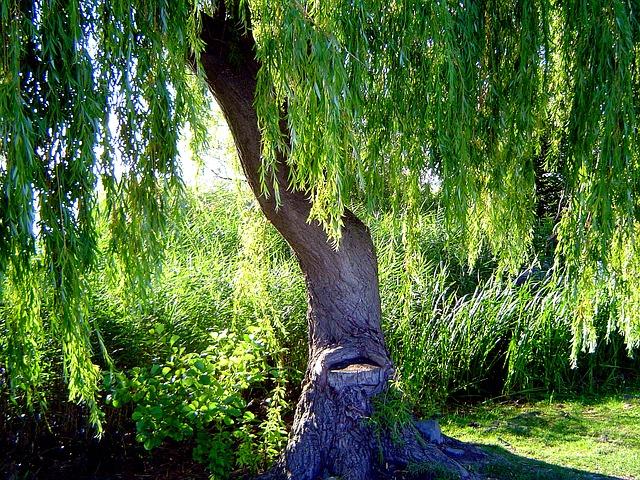Author’s Note: “When I was an infant of six weeks, my parents took the decision to leave Birmingham, Alabama, where I was born. The family—my parents, grandparents, my brother, and myself—journeyed from Alabama to Indiana south of Chicago. From there we moved again, this time to Illinois. “Weeping Willow” is inspired by my early experiences attending school as a transplant with a family from the Deep South to a place where the regional differences in speech were markedly different.”
Weeping Willow
. . . I beat you with a stick, voice, beat you //
until you speak, until you
speak right.
-Ilya Kaminsky
In the first grade—my first opportunity
to become a part of a group outside
and seemingly larger than my family,
as a willow is part of the riverbank
with the river, somnambulant, moaning
beside it—I was removed from the room
where all the other children sat at desks,
some crying, some laughing, some
pulling papers out and drawing pictures
of lions and cars and forests, and I was sent
to a cavernous dark room with walnut walls,
a black tiled floor, where windows shed
a painfully diffused light, sent there alone
to meet Mrs. Parsons for a private lesson,
an hour every day, five days a week,
where she taught me pronunciation, how
to speak as the other children spoke
who were not the offsprings of my mother,
born and raised in the Deep South,
who had not been hearing my mother’s
particular voice, which I had learned,
and whose inflections I had emulated,
who must have seemed as foreign to her
Midwestern acquaintances as this
first-grade boy had seemed to the teachers
in my school, to the students in my class.
For day after walnut-paneled day, I felt
then like the sole willow weeping in a grove
of sturdy oak trees. But I found myself,
my tongue rooting into the bank of speech.
#
V. P. Loggins is the author of The Wild Severance (winner of the Bright Hill Press Poetry Book Competition, 2021), The Green Cup (winner of the Cider Press Review Editors’ Prize, 2017), The Fourth Paradise (Main Street Rag, 2010) and Heaven Changes (Pudding House, 2007). His poems have appeared in The Southern Review, Poet Lore, Poetry Ireland Review, and other journals. He lives in Maryland.
Delmarva Review selects the best of new poetry, fiction, and nonfiction from thousands of submissions during the year. Designed to encourage outstanding writing from authors everywhere, the literary journal is a nonprofit and independent publication. Support comes from tax-deductible contributions and a grant from Talbot Arts with funds from the Maryland State Arts Council. Website: www.DelmarvaReview.org



Write a Letter to the Editor on this Article
We encourage readers to offer their point of view on this article by submitting the following form. Editing is sometimes necessary and is done at the discretion of the editorial staff.